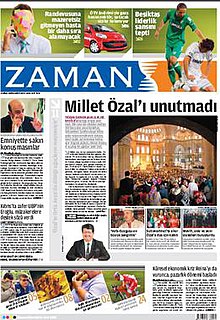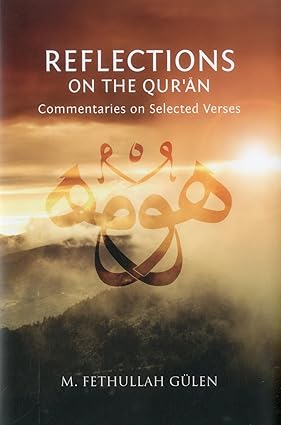Travel Tips
Lorem ipsum dolor sit amet, consectetur adipiscing elit.
Search

A key Islamic reformer known for promoting education and interfaith dialogue. It explores his rise from a young cleric to a leader of a vast network of schools and institutions, highlighting his complex relationship with Turkish politics and Recep Tayyip Erdogan. The text emphasizes Gulen's Sufi-inspired worldview, commitment to democracy, and advocacy for religious tolerance. Ultimately, it reflects on his legacy as a humble leader dedicated to fostering harmony within the Muslim community, despite the controversies surrounding his name.
Islamic world always used to undergo the dynamic worldview of Aristotle, where there was a strong tussle between light and darkness. In other words, religious demise and a revolutionary sunrise of religious values. Throughout Islamic history, the line of separation between evil and moral was done by the extinguished spiritual leaders, often referred to as "Mujaddids" (reformers). Those people unleashed the light of their hearts into the dark clouded religious spheres. They were the followers of Jalaluddin Al Rumi who found themselves as light in the dark atmosphere.
Muhammed Fethullah Gulen was one of them, who devoted his life to the harmony of the Muslim world and acted accordingly. He has a service period longing his whole life, as he is said to have delivered his first sermon at age 14. Moreover, His pious upbringing came at a time when the governing ideology was almost militant secularism, anchored in the legacy of the Republic's Founder, Mustafa Kemal Ataturk, and embraced by the political classes of Turkey's cosmopolitan coastal cities. Thus, he engaged in political and spiritual leadership of Muslim citizens in a way that incorporated Islamic political values into the realms of democracy. In order to dismantle the militant secularism in Turkey, firstly he extended his influence all over the world, with a particular focus on Turkey. He started his career in 1958 as a state-licensed cleric in Edirne and then in Izmir. By the 1980s, a network of private Gulenist schools spanned the country and consequently, his supporter base grew at an unexpected rate. Moreover, as Turkey's economy grew, Gulen's followers were thick among the ranks of a nouveau riche. They ventured into large business sectors, including large construction firms and publishing houses. In 1986, Gulenists started the Zaman Newspaper, and gradually it became Turkey's highest-circulation broadsheet until Erdogan's government ordered it closed in 2016.
In all these initiatives, he was backed by Erdogan and his ruling Justice and Development Party or AKP- a center-right, religiously minded party, as they found common cause with the Gulenists for they sought to refashion the rigidly secular Turkish state. The two camps operated somewhat in tandem as Erdogan instituted sweeping changes to the country's economy and then set about defanging Turkey's military, which long saw Itself as the defender of secularism and led coups or exerted influence over politics for decades. But, as Erdogan's power deepened, the Gulenists came to be seen as a threat. This marked the beginning of a new era in the Gulen movement, where predators aimed at him and started to culminate their attention in materializing mythologies on his exemplary personality. This confrontation ended up in declaring Gulen's organization "a terror group" in 2015, even prompting Turkish officials to compare him with al-Qaeda chief Osama Bin Laden or Ayatollah Ruhullah Khomeini.
But this comparison was questioned by Sevgi Akarcesme, a former leading Journalist at Zaman, who was exiled to Belgium in 2016 “If Gulen's organization is a terrorist group if he is more dangerous than Bin Laden, why did Erdogan support the movement for more than a few years, why did they patronize Gulen-sponsored events?”. The nuclear point, from where the measures of this split erupted, was the achievements that Gulen acquired through his emphasis on education.
In the view of Fethullah Gulen, education, as it was for a long time, was the key tool to social harmony and religious tolerance. He carried the idea that education is the most powerful tool in the world. Thus he developed his worldview on education which was based on Islamic Sufism, as Gulen preached a form of Sufi Islam steeped in the traditions of his Anatolian land. He was a proponent of the integrated education model where he, unlike Allama Muhammad Iqbal, kept a balance between Islamic education and modern education. While he considered scientific inquiry and reason as sources of knowledge, he strongly opposed empiricists and naturalists including John Locke. Firmly sticking to this view, his movement -known in Turkey as "Hizmet" or service- first gained a foothold running schools, and it went on to open educational institutions across Turkey and around the world.
By the 1990s, a generation of Gulen sympathizers began to enter various corners of the Turkish state's bureaucracy, which reformed Fethullah Gulen as a “threat” to Erdogan when it was supposed to be the survival of the fittest only. His critics say this was by design, an Infiltration that would prefigure a takeover of the government from within. Even the higher state officials described on this occasion, Gulenists as “a state within a state”. But, Gulen countered that it was simply the consequence of the education and natural talents of Turks who came through his organization's schools.
However, the Hizmet movement, gradually, extended well to the whole world. Clear figures on Gulen's notoriously opaque network are hard to come by. During its prosperous period in the early 2000s, however, the organization operated schools, hospitals, and charities in more than 100 countries and probably counted its supporters in the millions. But this revolutionary uprisal, even to the stage to be described as Turkey's second most powerful man after Saeed Nursi, resulted in forming the enigma of Turkey; which means it was not pro-Ataturk secular opponent, but the politically similar Erdogan who became the Gulenists’ nemesis. Even reporting his demise, Turkish foreign minister Hakan Fidan described him as the leader of a "dark organization".
In fact, beyond all these criticisms and mythologies, Fethullah Gulen was a good leader and proponent of democracy as he said; "If I were to say anything to people I may say people should vote for those who are respectful to democracy, rule of law, who get on well with people”. This can be vividly established from his quote. "All narcissistic dictators and tyrants living Hitler and Stalin have a bad ending. Their reign always ends in fury. He will suffer the same fate, gesturing to Erdogan”.
Acting in the roles of both spiritual and political leader, he contributed a lot, to contemporary Muslim society, both in physical and intellectual forms, as he had written more than 44 books including "The Messenger of God: Muhammed and Reflections on the Quran: Commentaries on selected verses”. Moreover, he was a proponent of inter-religious tolerance and interfaith dialogues, as reflected in his work "Toward Global Civilization Love and Tolerance” In addition to that he has personally met with leaders of other religions including Pope John Paul II, the Ecumenical Patriarch Bartholomew I of Constantinople, and Israeli Sephardic Chief Rabbi Eliyahu Bakshi-Doron.
To conclude, Fethullah Gulen was such a personality who devoted his whole life to the service of the Muslim community, as well as he never married. In return, he didn't want any recognition or any type of worldly achievements as he said: "I wish to die in solitude, with nobody actually becoming aware of my death and hence nobody conducting my funeral prayer. I wish that nobody remember me”. But, certainly, he would be remembered by both his followers and opponents.
Comments